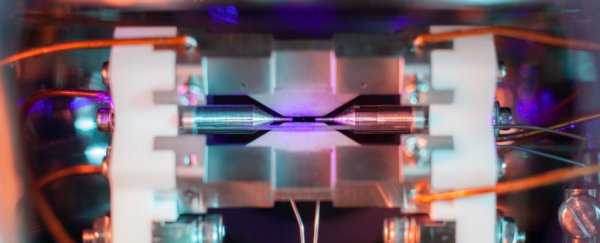At the very centre of the image above is something incredible - a single, positively-charged strontium atom, suspended in motion by electric fields.
Not only is this an incredibly rare sight, it's also difficult to wrap your head around the fact that this tiny point of blue light is a building block of matter.
Tiny specks of energy just like this one are at the centre of so much of the stuff around us, and the thought that we can see this one makes our hearts hurt.
In case you're struggling to get a close-enough view to see what we're talking about, the team over at Gizmodo has done the zoom work for you.
Just look at it:
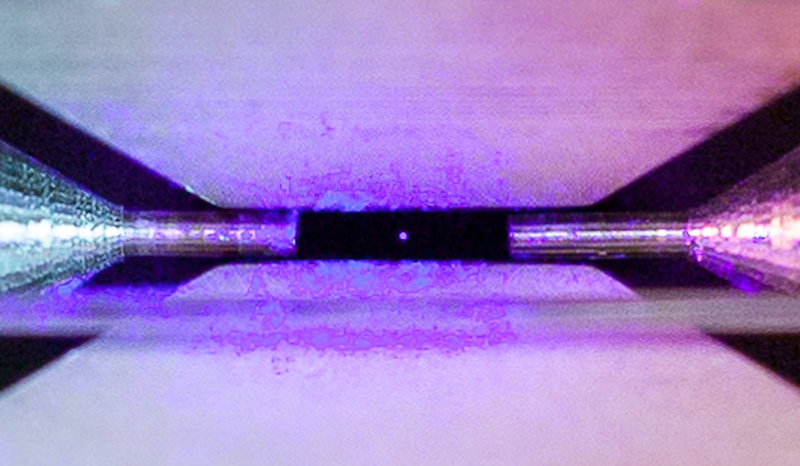 (David Nadlinger/University of Oxford)
(David Nadlinger/University of Oxford)
The image was captured by physicist David Nadlinger from the University of Oxford, and it's been awarded the overall prize in the UK's Engineering and Physical Sciences Research Council photo competition.
To give you a little perspective on the size of this set-up, the atom is being held in place by electric fields emanating from those two metal needles on either side of it.
The distance between them is about 2 millimetres (0.08 inch).
The atom is being illuminated by a blue-violet laser. The energy from the laser causes the atom to emit photons which Nadlinger could capture on camera using a long exposure.
The whole thing is housed inside an ultra-high vacuum chamber and dramatically cooled to keep the atom still. Nadlinger took this photo through the window of the vacuum chamber.
"The idea of being able to see a single atom with the naked eye had struck me as a wonderfully direct and visceral bridge between the miniscule quantum world and our macroscopic reality," he explains.
"A back-of-the-envelope calculation showed the numbers to be on my side, and when I set off to the lab with camera and tripods one quiet Sunday afternoon, I was rewarded with this particular picture of a small, pale blue dot."
Not only do these types of laser-cooled atomic ions allow researchers to study and harness the properties of the quantum world, they can also be used to build atomic clocks and future quantum computers.
You can see some of the other winning images below:
'Searching for Simulated Fukushima Fuel Debris Using an AVEXIS TM ROV' by Simon Watson, University of Manchester
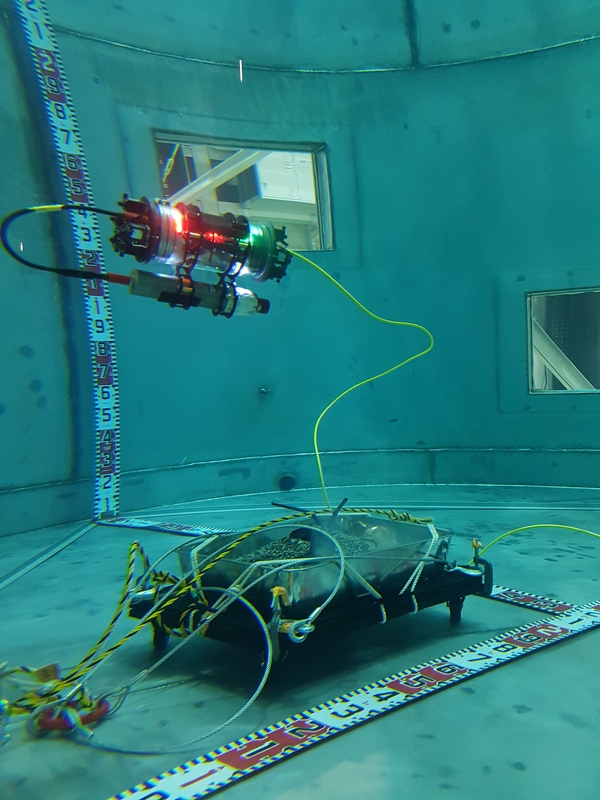 (Simon Watson/University of Manchester)
(Simon Watson/University of Manchester)
'In a kitchen far far away…' (The fluid instability patterns on top of a soap bubble) by Li Shen, Imperial College London
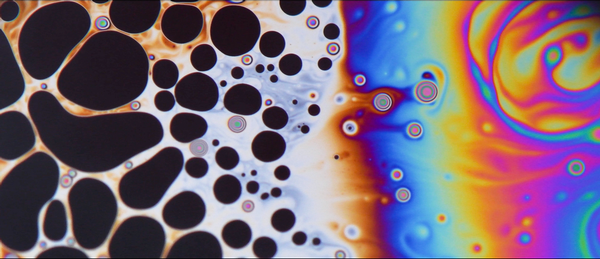 (Li Chen, Imperial College London)
(Li Chen, Imperial College London)
'Biodegradable microbowls could help fight stubbon cancers' by Tayo Sanders II, University of Oxford
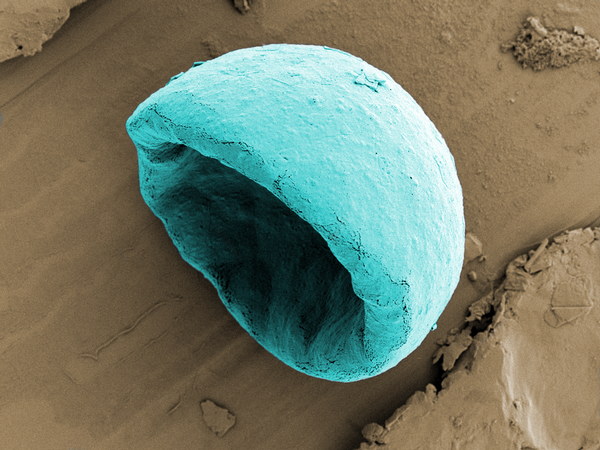 (Tayo Sanders II, University of Oxford)
(Tayo Sanders II, University of Oxford)
'Building blocks for a lighter future' by Sam Catchpole-Smith, University of Nottingham
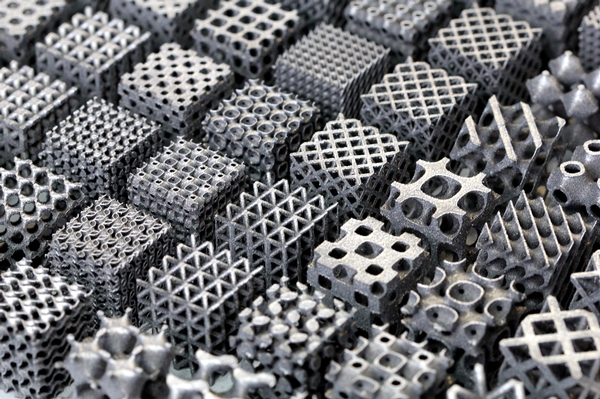 (Sam Catchpole-Smith, University of Nottingham)
(Sam Catchpole-Smith, University of Nottingham)
See all the winners here.
